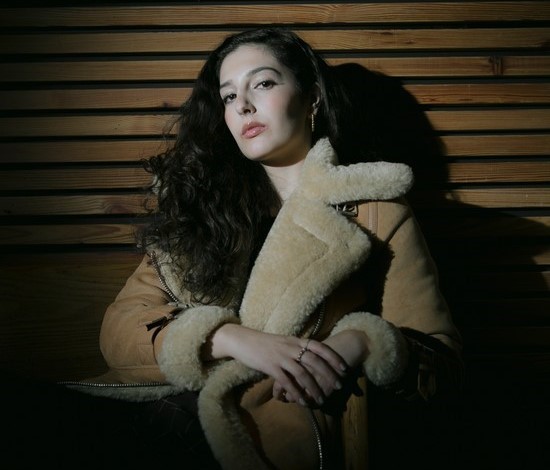Sanaz Toossi had just cleared security at the San Francisco airport
when her cellphone rang at midday Monday. It was her agent, telling the
31-year-old playwright she had won the Pulitzer Prize in drama for “English,”
her first produced play.
اضافة اعلان
Toossi, who had written the play as a graduate school thesis
project at New York University, was in disbelief. “I asked, ‘Are you sure?’ And
when she said, ‘Yes,’ I said, ‘Could you please just double-check?’”
The prize was real, and as Toossi boarded the plane home to
Los Angeles, her phone began buzzing with congratulatory messages not only from
around the US, but also from Iran, where her parents were born and where the
play is set.
“English,” which off-Broadway’s Obie Awards recently named
the best new American play, is a moving, and periodically comedic, drama about
a small group of adults in Karaj, Iran — the city where Toossi’s mother is from
— preparing to take the Test of English as a Foreign Language. The Pulitzers
called it “a quietly powerful play,” and said of the characters that “family
separations and travel restrictions drive them to learn a new language that may
alter their identities and also represent a new life.”
The play was originally scheduled to be staged at the
Roundabout Underground in 2020 but was delayed by the coronavirus pandemic; it
instead had a first production last year at the Atlantic Theater Company in New
York, co-produced by Roundabout. It has since been staged in Boston,
Washington, Toronto, Montreal, and Berkeley, California, with productions
planned in Atlanta, western Massachusetts, Seattle, Chicago, and Minneapolis.
 Iranian-American
playwright Sanaz Toossi at the Linda Gross Theater in Manhattan, on February
14, 2022.
Iranian-American
playwright Sanaz Toossi at the Linda Gross Theater in Manhattan, on February
14, 2022.
Toossi, who was born and raised in Orange County,
California, spoke Farsi with her family at home and English outside the home,
and she visited Iran regularly while growing up. In a telephone interview
Tuesday, she talked about “English” and the Pulitzer win.
These are edited excerpts from the conversation.
How did the idea for “English” come to you?I guess I wrote this play out of rage for the anti-immigrant
rhetoric that was, and is, so pervasive in this country. I’m so grateful that
my parents were able to immigrate to this country and make something better for
both themselves and for me. They worked their asses off, and they created
beauty where there was none, and it wounded me to see them and myself spoken of
like we did not belong here.
What is the play about?It’s about the pain of being misunderstood, and how language
and identity are interwoven.
You are a writer, and you wrote a play about language. What
did you learn about words?A: I feel incredibly insecure about both my English and
Farsi speaking abilities — I feel like I know 50 percent of each language, and
I feel like I’m always bombing job interviews because the words never come to
me in the way that I want them to come to me. This play was, of course, so much
about my parents and immigrants and hoping that we can extend grace to people
who are trying to express themselves in a language they didn’t grow up
speaking, but I think it was also a reminder to be kind to myself.
What is it like to watch the play with audiences who are,
presumably, mostly not Iranian Americans?It’s light torture to watch your play with an audience
around you. I just watch them watch the play. I remember in New York when we
did it, it was hard to feel like we were getting the wrong kinds of laughs some
nights. But I also have been really moved by the non-Iranian audiences who have
come to see the play and have found themselves in it. That’s what you ask of an
audience, and that’s beautiful.
As the play is done around the country, you are creating
more work for Iranian American performers. Was that a motivation?I grew up watching media in which I was incredibly
frustrated by our representation and the roles being offered to us. I know so
many actors in our community, and they’re so incredibly talented, and to feel
like their talents were not put to good use was frustrating. I wanted to work
with them, and I wanted to give them roles that they loved. It was really
important to me to make this play funny, because I didn’t want to shut our actors
out of big laughs.
What’s next for you?This year I had to ask myself if what we do is important.
The people of Iran are in the midst of a woman-led revolution, and they’re
putting their lives on the line. I wonder who I would be if we’d never left,
and I wonder if I would let my roosari [headscarf] fall back, knowing it could
mean my life. But I do really, really believe theater is important — I have
been changed by theater, and theater has imagined better futures for me when I
have failed in imagination. So I don’t know what’s next, but I just hope that
in this year of so much pain and bloodshed, I hope this signals to Iranians
that our stories matter and we’re being heard. And one day soon, I hope we get
to do this play in Iran.






